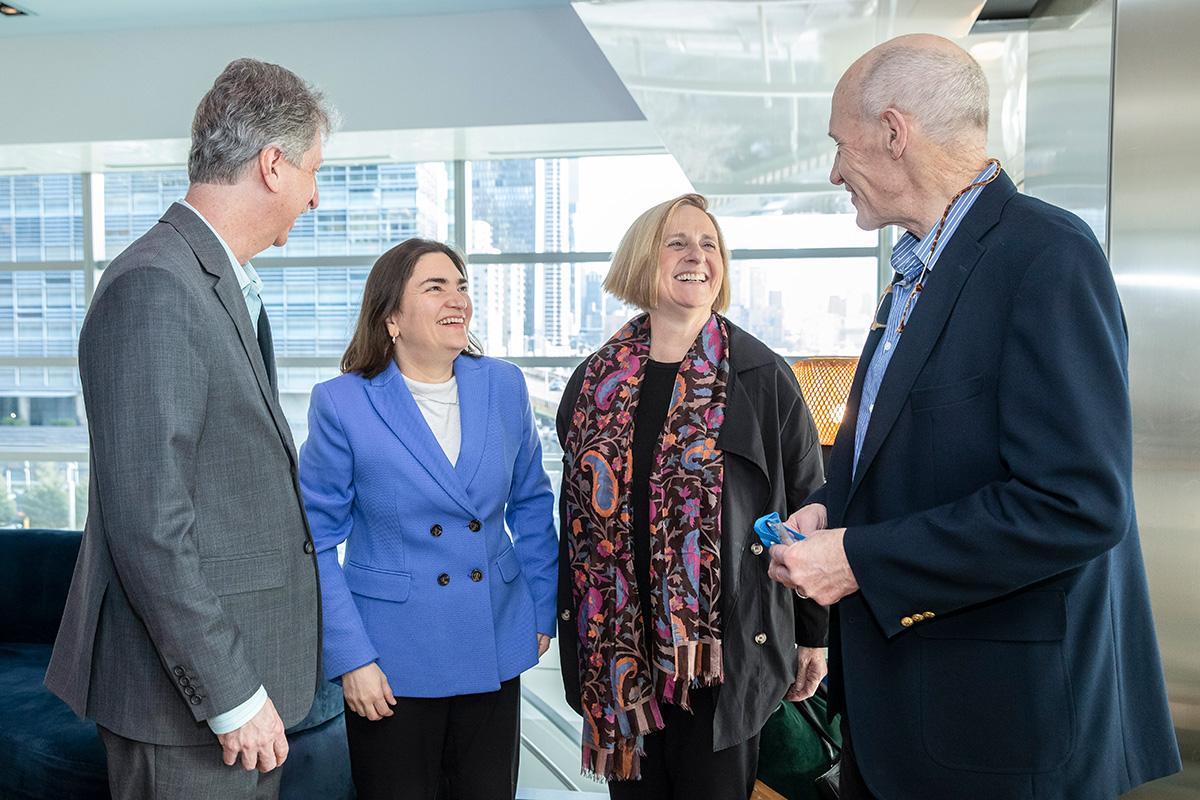
Glioblastoma, the most common type of primary brain tumor, is diagnosed in approximately 15,000 people in the United States each year and the average survival time is eight months.
ACGT prioritizes funding research to advance cell and gene therapies for this deadly disease, and early results from the work of ACGT Research Fellows and others offer hope that CAR T-cell therapy can effectively treat aggressive brain tumors such as glioblastoma by targeting specific proteins expressed by the cancer cells.
ACGT Research Fellow and Scientific Advisory Council member Carl June, MD (University of Pennsylvania), is helping to develop a dual-target CAR T-cell therapy for glioblastoma. Dual target means the CAR T cells are engineered to look for two proteins expressed by the cancer cells rather than just one.
A challenge to CAR T-cell therapy for solid tumors such as glioblastoma is a phenomenon called antigen escape, which occurs when the tumor cells reduce the expression of the target
antigen to evade attack by the CAR T cells. By using dual-target CAR T cells, the chance of antigen escape diminishes and the therapy can remain effective for a longer time.
Dr. June reports that in a phase 1 clinical trial testing the dual-target CAR T cells in six patients, all six experienced reduced tumor sizes, meaning the therapy was effective in killing glioblastoma cells. The dual-target CAR T cells remained active for approximately one month before their activity dropped. While the tumors returned over time, the results show substantial progress in generating an anti-tumor response with CAR T-cell therapy.

Another study is testing a CAR T-cell therapy developed by ACGT Scientific Advisory Council Member Christine Brown, PhD (City of Hope Comprehensive Cancer Center). This therapy is delivered directly into the brain using a special catheter that bypasses another challenge with brain tumors: the blood-brain barrier.
The blood-brain barrier is a combination of blood vessels and tissue that separates the central nervous system and brain from the rest of the body, preventing harmful substances in blood, such as bacteria, from reaching the brain. The barrier can also block the immune system from sending T cells to fight brain tumors, hindering the effectiveness of CAR T cells delivered into the patient’s blood system.
By injecting the CAR T cells directly into the brain, Dr. Brown and her team improved the chances of the engineered cells reaching the disease site. In a phase 1 clinical trial consisting of 58 people with recurrent high-grade brain tumors, half of the participants achieved stable disease (no growth of tumors) for at least two months after receiving Dr. Brown’s CAR T-cell therapy. Two patients had a partial anti-tumor response (scans showed the tumor shrank) and two others had a complete response (no sign of tumors on scans).
A third study showing promise is a phase 1 clinical trial evaluating a CAR T-cell therapy for glioblastoma. Marcela Maus, MD, PhD (Massachusetts General Hospital), reports that just days after a single treatment, patients experienced dramatic reductions in their tumors with one patient achieving near-complete tumor regression. Because the patients’ tumors returned over six months, Dr. Maus is now focusing on extending the length of this promising response to CAR T-cell therapy.



